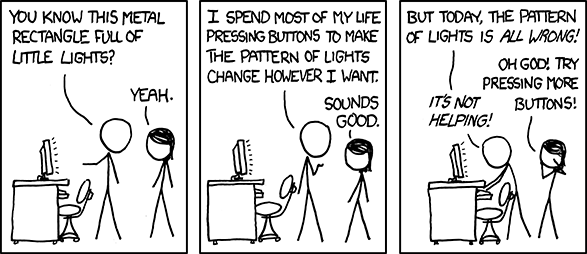I don’t have a definition of Digital Humanities yet. I came into the class thinking of it as related to library sciences. After our meeting, I am thinking about the following:
1. If “analogue” is indeed the opposite (or predecessor) of “digital,” is there (was there) ever an “analogue” humanities?
2. I don’t think it’s helpful to think of DH as a set of tools. Too often, then, it becomes easy to group it with Constructivist pedagogy. I still maintain (especially after perusing the MLA job listings) that the majority of DH jobs advertised include a “preferred” or “required” background in library sciences. I suspect that the DH jobs are not being advertised on MLA as DH jobs because many schools see DH as a tools-based discipline; unfortunately, this places DH in the realm of “academic technology,” which leads to a large number of staff-based rather than faculty-based positions. I have found, though, that these staff-based positions often come with teaching and research opportunities, and I’m curious to see what will happen to DH as more universities adopt a business model and strip down their academic departments.
 There There is no need to be afraid of coding! These days, DH job descriptions include a list of languages with which one should be familiar when applying (i.e., HTML, CSS, PHP, Python, etc.). I’ve seen more and more job descriptions asking for ITIL Advanced Certification. Why in the world would a graduate student from the Humanities be aware of such certifications, or be willing to pay the $2000 for the most basic level of that certification? In the few AT interviews I’ve gone to, the interviewers cannot really elucidate how these languages or certifications will apply in the day-to-day tasks.
There There is no need to be afraid of coding! These days, DH job descriptions include a list of languages with which one should be familiar when applying (i.e., HTML, CSS, PHP, Python, etc.). I’ve seen more and more job descriptions asking for ITIL Advanced Certification. Why in the world would a graduate student from the Humanities be aware of such certifications, or be willing to pay the $2000 for the most basic level of that certification? In the few AT interviews I’ve gone to, the interviewers cannot really elucidate how these languages or certifications will apply in the day-to-day tasks.

